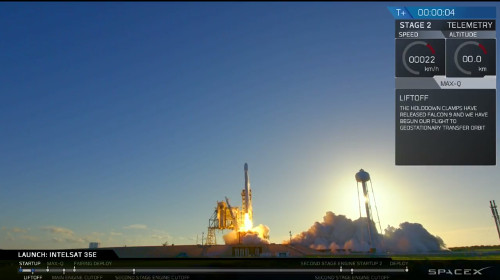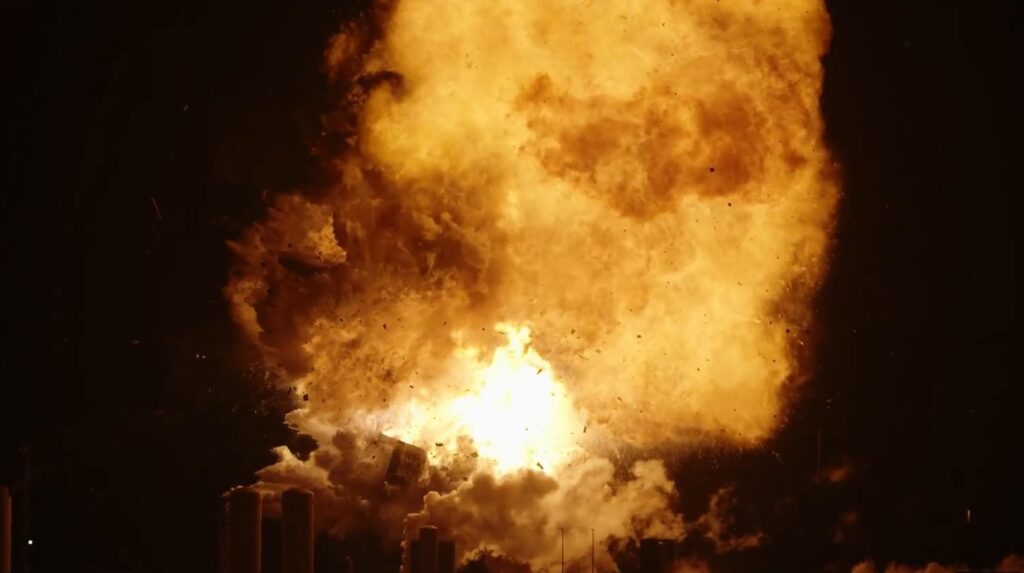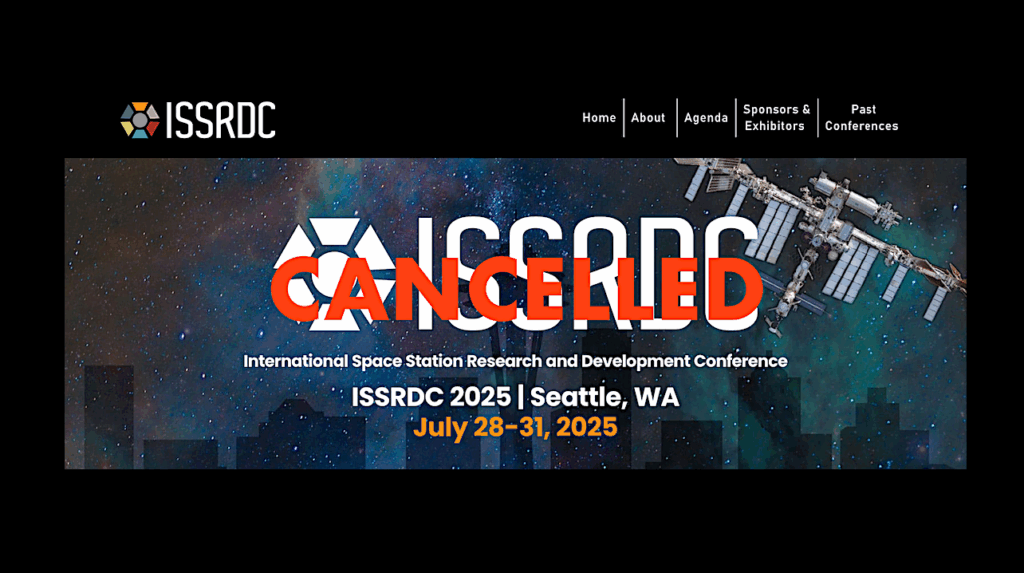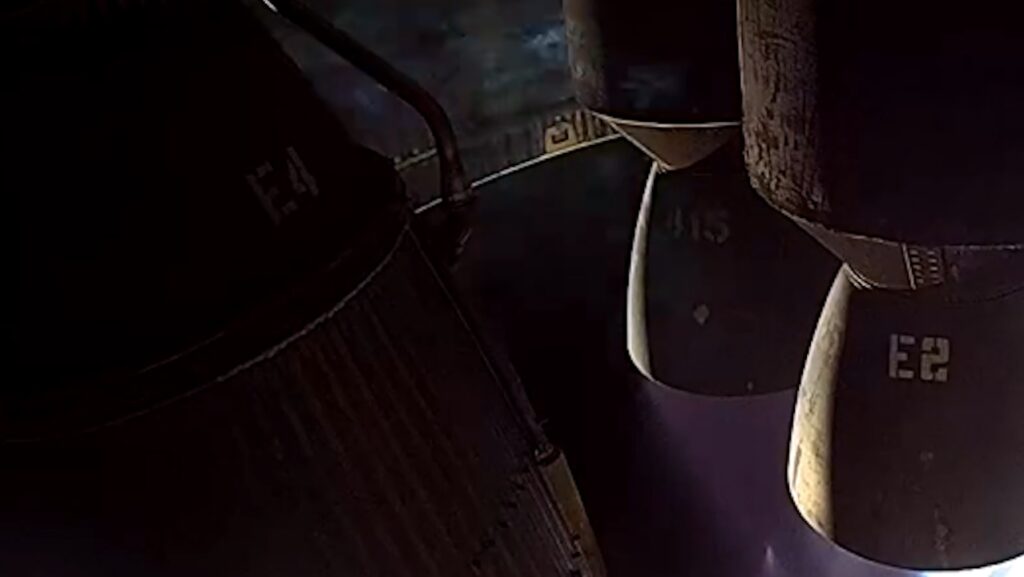SpaceX Successfully Launches Intelsat 35e

It was a case of the third time being the charm as SpaceX conducted its 10th launch this year. The Intelsat 35e has separated from the Falcon 9 second stage as expected and is in a good orbit.
– Launch replay.









Another smooth launch for SpaceX with the six metric ton 15-year life IS-35e, which separated on the target geostationary transfer orbit. When we have reached a point at which we are surprised that no attempt was made to recover the booster, we should recognize that we have come a long way.
I’m glad everything went well. But the launch attempt on the 2nd had me worried. A failure would have been a new first in spaceflight. Two failures on the same day. (A Chinese CZ-5 failed to reach orbit.) I guess it is a sign of progress that the concept of two launches, let alone two failures, on the same day is imaginable. But I’m not looking forward to that first.
When will launches no longer provide 10 minutes of terror, I wonder?
With each launch comes the decreasing but measurable likelihood of catastrophic failure. It’s no wonder – the level of constrained energy, directed just ‘so’, will only increase as rockets grow ever larger. We’ve not seen the rocket equivalent of the A 380, for instance.
Can we ever rely on rockets as we do aircraft? (Themselves containing huge amounts of chemical and kinetic energy).
Will rockets ever shed the high probability of failure?
We might be spoiled by the standards of civil aviation. The fatal accident rate for aircraft is about one per two _million_ flights.
But part of this isn’t the actual risk. It’s the appearance of risk. One airplane accident will get more news coverage than a hundred car accidents. One rocket going boom will get much more coverage than an airplane accident.
IMHO China will eventually realize that LH2 is not an efficient fuel for a core stage and move to a heavy (triple core) version of the CZ-7 for heavy lift instead.
Random space fact: So far SpaceX has had more launches this year (10) than either Russia or China (8 each).